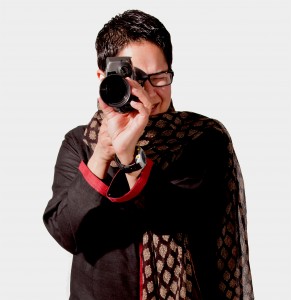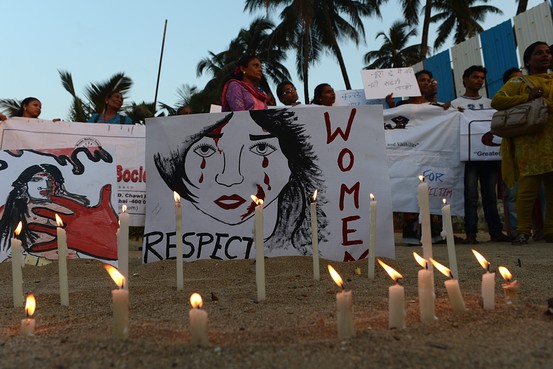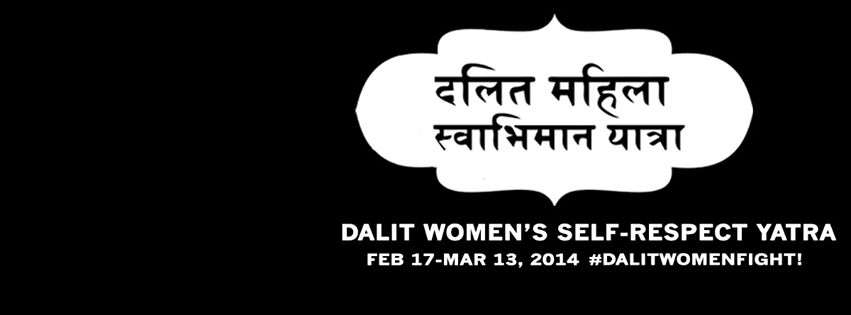Feminists We Love: Sonali Gulati
Sonali Gulati is an independent filmmaker, a feminist, grassroots activist, and an educator. She is an Associate Professor at Virginia Commonwealth University’s Department of Photography & Film. She has an MFA in Film & Media Arts from Temple University and a BA in Critical Social Thought from Mount Holyoke College. Sonali grew up in New Delhi, India and has made several short films that have screened at over three hundred film festivals worldwide. Her films have screened at venues such as the Hirshhorn Museum, the Museum of Fine Arts in Boston and the National Museum of Women in the Arts, and at film festivals such as the Margaret Mead Film Festival, the Black Maria Film Festival and the Slamdance Film Festival. Sonali’s award-winning 2005 documentary film, Nalini by Day, Nancy by Night explores business process outsourcing in India. The film was broadcast on television in the U.S., Canada, Europe, Australia, New Zealand, The Middle East, South Asia and North Africa. Her most recent film I AM has won 13 awards and continues to exhibit extensively in the film festival circuit. Sonali has won awards, grants, and fellowships from the Third Wave Foundation, World Studio Foundation, the Robert Giard Memorial Fellowship, the Virginia Museum of Fine Arts Fellowship, the Theresa Pollak Prize for Excellence in the Arts, the Center for Asian American Media (CAAM), VCU School of the Arts Faculty Award of Excellence and most recently a grant from the Creative Capital Foundation.
TFW: You’ve spent half of your life living in India and half of your life living in the U.S. Please share with us your thoughts about growing up and living in the global south in contrast to living in the global north as an immigrant woman of color.
Sonali: Actually I’m still two years away from that point where I would have spent equal amounts of time in both countries. As far as comparison goes, it is two very different worlds and I consider both places my home and have a special connection to each. I feel a sense of belonging in India that I don’t feel here in the US. I have always felt like an outsider here. Though I find that I’m being treated more and more as an outsider even when I return to India. So in some sense there’s this real yearning to resolve the question of where do I belong? And the answer really varies from both to neither to in between somewhere.
TFW: Please share with us your thoughts about the politics of representation in the Indian and US media. What are the similarities and differences with how women, LGBTQ people, and other historically marginalized populations are portrayed in films and on television in both of these countries?
Sonali: Honestly the answer to this one is not easy or short. There is most definitely sexism and homophobia in both countries. It feels like in India such prejudices have been far more blatant and less subtle. However queer rights activists in both countries have been working towards sensitizing media professionals regarding such representations. I think that the US has made far greater strides with regard to seeing more women, more people of color and more queer people in mass media. We can now turn on the TV and it’s no longer Will and Grace where there are no people of color despite the show being set in New York city. In India, one can almost guarantee queer invisibility in mass media. But this subject calls for a longer discussion because there are no straightforward answers to this one.
TFW: How did you come into your feminist identity? Who were/are your role models? What are your thoughts about feminist filmmaking as a tool for global social change?
Sonali: My feminist identity began with my mother even though I did not quite know it at the time. I recall my mother fighting with the school officials, while I was in kindergarten, insisting on putting down her name in the forms as opposed to my Father’s name. My mother was separated from father and she had sole custody of me but the school refused to recognize her as my legal guardian. I didn’t quite understand what it all meant at the time and was even slightly embarrassed by my mother’s public outrage, but the seeds of feminism had been sown. Years later I recognized how girls were treated differently than boys and how women were treated differently than men. My mother was my role model who managed to not just survive but thrive as a single divorced woman raising two children by herself at a time when only a handful of women were divorced in India.
With regard to feminist filmmaking as a tool for social change, I believe that women’s voices need to be heard, untold stories need to be told. My interest in filmmaking began through Visual Anthropology where I saw films made mainly by wealthy white men who could afford to travel to countries in Africa, who made films about “others”. It made me ask the question: “Who has the power to represent whom?” And “what would happen if these people were given cameras and asked to represent themselves?” “How would those films be different?”. These questions made me realize the importance of self-representation. And so as a lesbian woman of color, I began my journey of making personal/ autobiographical films.
TFW: I believe your most recent award-winning film I AM is phenomenal. Similar to your previously completed acclaimed films, I AM is universal and yet, very culturally specific. Your directorial lens captures the vulnerability and bravery of courageous Indian gays, lesbians, and transpeople who, in spite of various forms of retaliation and persecution, refuse to conform to heterosexist and homophobic societal norms in India. I appreciated how you trace the origins of many of the contemporary homophobic norms in India back to British colonial rule. Finally, I loved the portrayal of some of the parents who are unapologetic with their love and unconditional support of their LGBTQ children. What was the catalyst for you to make this film?
Sonali: I did not get a chance to come out to my mother as a lesbian before she died. I felt that I had some unfinished business and so I decided to have a conversation with parents of other queer people, a conversation that I did not have with my own mother. It was a very healing process for me as it helped me imagine how my mother might have reacted years after the initial coming out process. I always assumed that my mother would not have been okay with my sexuality. It was hard for me to imagine my mother accept me for who I was/am. But when I saw parents of other queer people go through the journey from shame and rejection to acceptance and understanding, it helped me see the possibility of my mother being on a similar journey.
TFW: You’re co-parenting your toddler son with your partner. Will you please share what queer feminist mothering means for you?
Sonali: Queer feminist parenting has been a bit of a learning process for us since we don’t have many role models around us. We don’t follow prescribed traditional gender roles in our family. My partner and I both cook and we both sit in the driver’s seat (taking turns of course). So in that sense there is a great sense of equality and division of work. The unlearning and learning for me took place right after I gave birth to our son. I felt this great need of privacy to breastfeed my child and as I thought more about it, I realized that women ought not to feel this need to hide and that the breast ought not to be so sexualized. It took me some time to start nursing in public but I got over it and realized that I am merely feeding and nourishing my child and that if people have a problem with nursing in public, then they ought to cover their eyes. Queer Feminist mothering has also meant asking myself the question of “How do I raise a feminist son?”. Queer feminist parenting has also meant finding ways for both parents to have a unique and special connection with our son. For us it meant my giving birth but for our son to have my partner’s last name.
TFW: How do you negotiate your partner, mother, grassroots activist, educator in the academy, and filmmaker identities? Do you view them as contradictory or complimentary?
Sonali: I embrace all these different roles that I play in my life and believe that they affect each other. Being a partner and mother has made me a much more caring, sensitive, and nurturing teacher. Being a teacher has kept me on the path of learning from my students which in turn has helped me be a better filmmaker. Being an active filmmaker has in turn made me a better teacher as I have experiences that I can share with my students about the practical aspect of being a filmmaker. Being an activist and feeling passionately about social justice issues has made me question the role of my work in the larger world of mediamaking. Being an activist has also made me encourage my students to develop a critical social consciousness about the politics of representation and their role in mediamaking.





0 comments